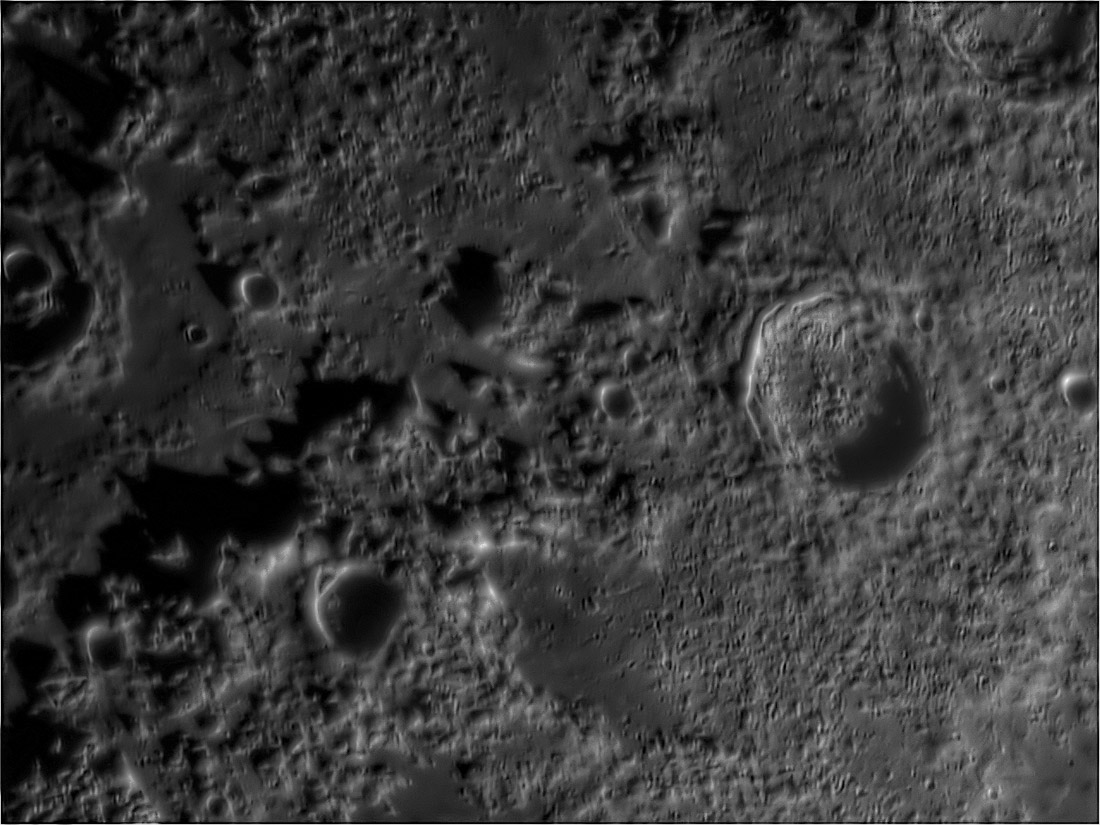October 30, 2024
Alexander the not So Great
Originally published June 2, 2014

image by Al Paslow, Bethel Park, Pennsylvania, USA
I enjoy it immensely when a new imager joins the ranks of LPOD, and that is what Al does today with his low Sun view of the northern ridge of the Caucasus Mountains, Calippus, Alexander and Eudoxus. These named features provide location but what is most interesting is the hilly texture nearly everywhere. This is ejecta from the formation of the Imbrium Basin, augmented locally by debris from Eudoxus and probably also Aristoteles, partly visible to the northeast. Interspersed here and there are smooth mare lava deposits. In fact, without its diagonal splash of lava I wonder if Alexander would even be recognized as a crater, much less received an undeserved name. I am not certain that it is, or was originally, an impact crater. A Lunaserv overhead view shows that it is nearly twice as long in an east-west direction as its north-south diameter. But that assumes that the eastern, lower half of the bottom ridge is part of the crater rim. If not, then the mountainous ridges on the north, west and south define a crater about 60 km in diameter, not the official diameter of 95 rim. Should a feature have a name if its origin and diameter are uncertain? Perhaps the answer is yes, just to make it easy to refer to something that may not exist.
Chuck Wood
Technical Details
May 6, 2014. 11 inch telescope + ASI Camera + 2.5x Powermate + Lumicon light red filter.
Related Links
21st Century Atlas chart 10.
Yesterday's LPOD: The Western Chain
Tomorrow's LPOD: Observe Yangel Pyroclastics
COMMENTS?
Register, Log in, and join in the comments.



